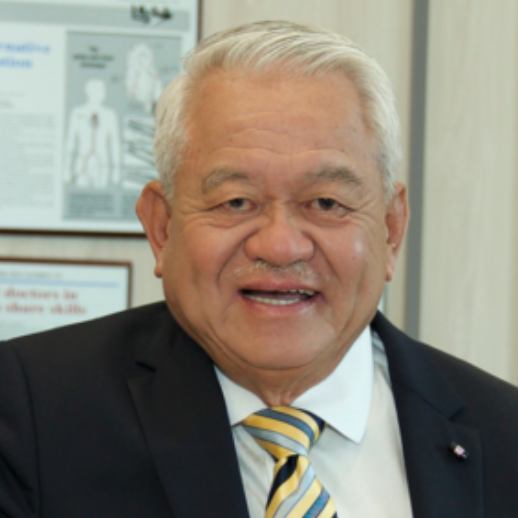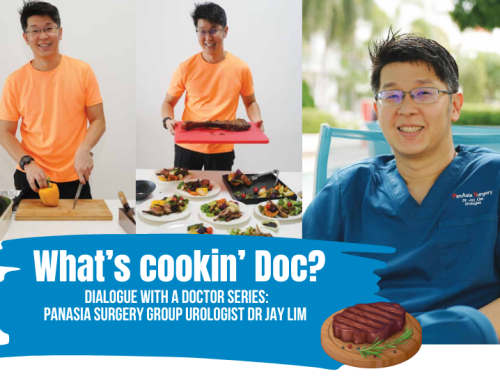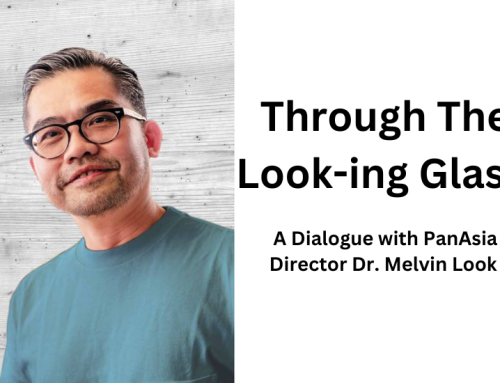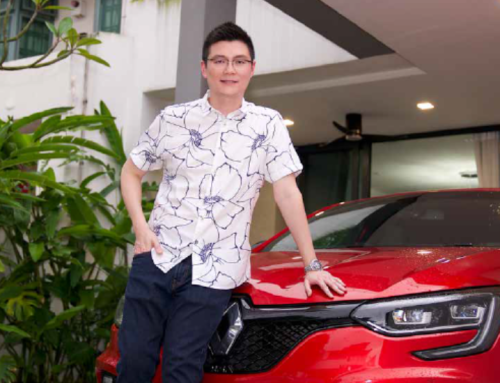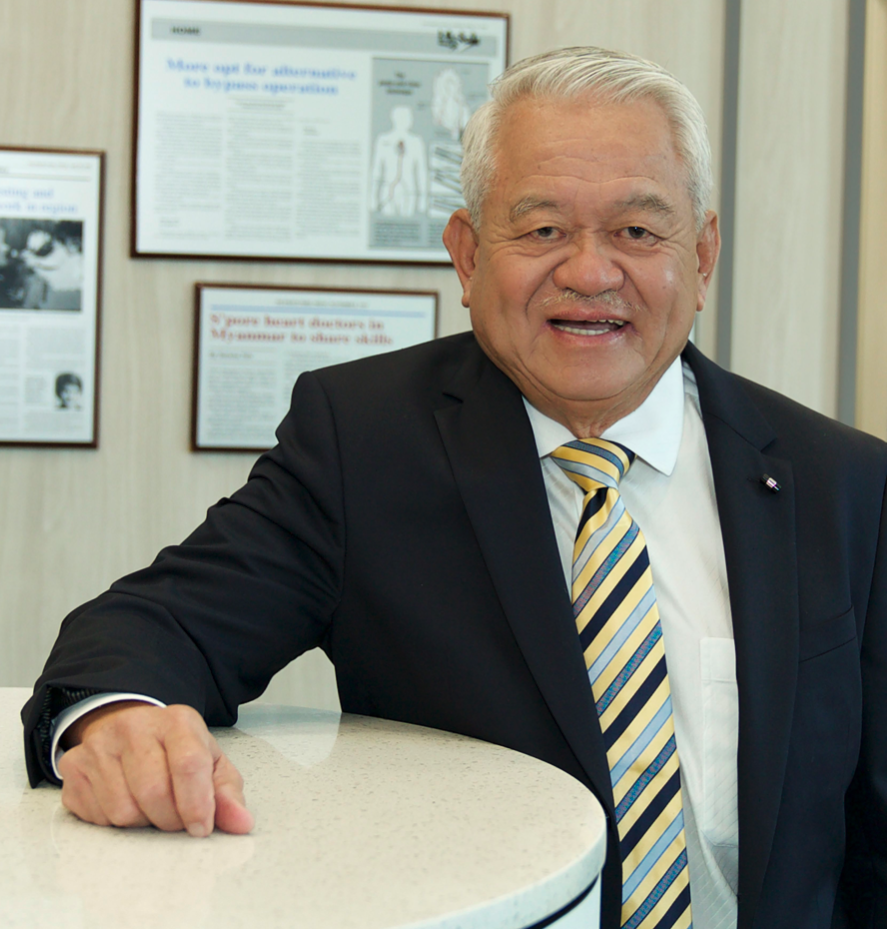
The Cardiac Centre Founder Dato Dr Leslie Lam
The heart is one of the most important organs in our body. It is the engine room which sustains life, pumping blood through a 97,000km long network of vessels in our body. Our heart works ceaselessly, beating 100,000 times a day and 40 million times a year. In total, this tireless organ clocks up a total of three billion heartbeats over average lifetime. It keeps our body freshly supplied with oxygen and nutrients, while clearing away harmful waste matter. It is the centre of our blood delivery system; it is central to our life.
Thus, if our heart ever encounters any problems, we would want only the best heart doctor look after this delicate and precious organ of ours. And when we speak about the best and most trusted cardiologists in Singapore (and indeed, around the world), one name instantly comes into mind: Dato Dr Leslie Lam.
Physician to the Sultan of Brunei, Honorary Consultant to the Ministry of Health in Myanmar and Visiting Consultant to the Republic of Seychelles, Dato Dr Lam’s many international appointments speak for themselves about the level of esteem and trust in which he is held. In this issue, we have the pleasure of speaking with Dato Dr Lam, Singapore’s King of Hearts, to find out more about his ultra-successful career and the secrets to his jovial longevity.
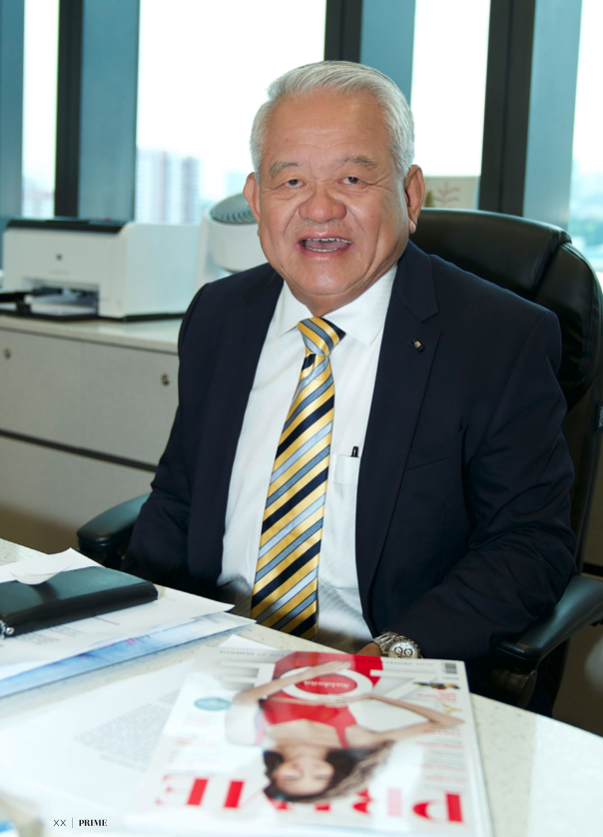
The Cardiac Centre Founder Dato Dr Leslie Lam
Good morning, Dato Dr Lam. Thank you for hosting us here today. First of all, we wish to congratulate you on the publication of your own Wikipedia page. How do you feel about this achievement?
Dato Or Leslie Lam: Thank you, it is a pleasure having you as well. I think it is fantastic! Every time, I have accessed Wikipedia, I have always wondered how people got onto it.
One day, I was having lunch with Singapore’s Ambassador to the Russian Federation, (Mr) Michael Tay, who remarked to me, “Your career is so interesting. You are the first to do angioplasty. You are first to do Enhanced ECP (External Counterpulsation). You are the first to do AngelMed. You have done so many firsts in Singapore. You are also the physician to the Sultan of Brunei, and advisor to the governments Myanmar and Seychelles. You should have a Wikipedia page. I am sure they will publish it!
I did not think so at the time, and I told him that I did not think they would be interested in publishing my page. He then told me, “Let me do it!” He took some materials from my assistant and I did not hear from him for a while. Before I knew it, my Wikipedia page was published. I have had so many calls from my patients and even my former boss calling and congratulating me on this. I am happy and grateful for this achievement. After all, it is something that stays on for life. Future generations would get to read it as well.
Let us talk about your very successful and interesting career. You have been in practice for a number of decades now. Going back to the start why did you choose cardiology?
DLL: Even as a young man, I was extremely good with my hands. When I was an intern, I did about fifty appendicectomies. Most interns were not allowed to do this, but the doctor-in-charge saw that I was good at it and gave me the opportunities. I could do an appendicectomy in 14 minutes. He told me, “You have a good pair of hands. You would be crazy not to use them.” That was back in 1967.
In those days, the doctors were really “non-thinking” surgeons. They simply did the surgeries, but did not even take part in post-surgery care. This did not offer a challenge to me. I did not want to be another “non-thinking” doctor even though l have good hands. Then, cardiology appeared on the horizons, and I found my niche. A niche where I can use both my hands and my brain.
To me, cardiology offered a challenge that I could not refuse. I had found my thing and I simply had to go with it.
Tell us about your experiences and career as a cardiologist.
DLL: When I started in Dublin, I treated congenital heart defects (CHD) for five years. Those were very complex surgeries as they involved new born babies. We had to operate on them quickly as otherwise, they may not have a good chance of survival. To me, I still think those surgeries are much more difficult than the balloon angioplasties and stenting we do for adults. After my stint in paediatric cardiology, I went back to doing adult cardiology in Dublin before I came back to Singapore in 1981.
When I first came back to Singapore, my boss at SGH (Singapore General Hospital) wanted me to do paediatric cardiology. However, I had done paediatric cardiology during my time in Dublin and I did not like it. Furthermore, the birth rate in Singapore was very low and the number of CHDs was SO small that a paediatric cardiologist would end VP doing general paediatrics most of the time. At that time, balloon angioplasty was emerging and I wanted to train in this in procedure. I then took a government scholarship and went to Australia to train in balloon angioplasty.
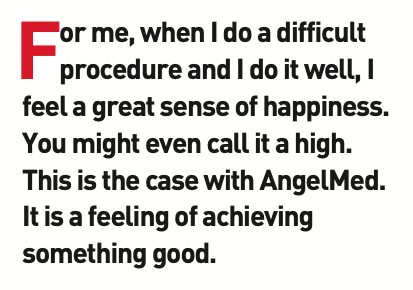
Upon my return, I started the balloon angioplasty programme in SGH and we published the first case of PTCA (Percutaneous Transluminal Coronary Angioplasty) in Singapore. After that, I had many reference cases for the procedure.
Due to some personal and professional reasons, I then decided to go into private practice soon after. My practice took off almost immediately and it has been very successful.
How did your appointments as the physician to the Sultan of Brunei, and advisor to the governments of Myanmar and Seychelles come about?
DLL: One day, I simply received a call from the Sultan of Brunei asking if I could go to Brunei to see him and become his physician. At that time, I was going to Myanmar a lot and the local press was already asking me about Myanmar. And then, somehow, the local media got wind of me going to Brunei and I became known as the private physician to the Sultan of Brunei. Following that appointment, I also got appointments with Myanmar and Seychelles.
Recently, you became the first doctor in Asia to implant the AngelMed Guardian System. Tell us how this opportunity came about.
DLL: The AngelMed Guardian System took 15 years to develop and it is a genius piece of technology. Its clinical trials took place at around 2018 and it was subsequently approved by the US FDA (Food and Drug Administration). In the same year, the inventor of the device, Dr David Fischell, came to Singapore to give a talk and I was invited to chair the meeting. We hit it off immediately. He then invited me back to San Francisco for a meeting, where we discussed bringing AngelMed to Singapore.
I applied and received permission from HSA (Health Sciences Authority) under GN-27, which allowed me to perform 100 cases under special approval. And so, I did the first four cases ever in Singapore.
For the first case of implantation, the Americans were actually supposed to fly to Singapore to assist me; but then COVID-19 struck. Travel restrictions came in, and I thought the opportunity was gone. It then came to me that we could the surgery via live video conferencing. And so, we did that for the first four cases.
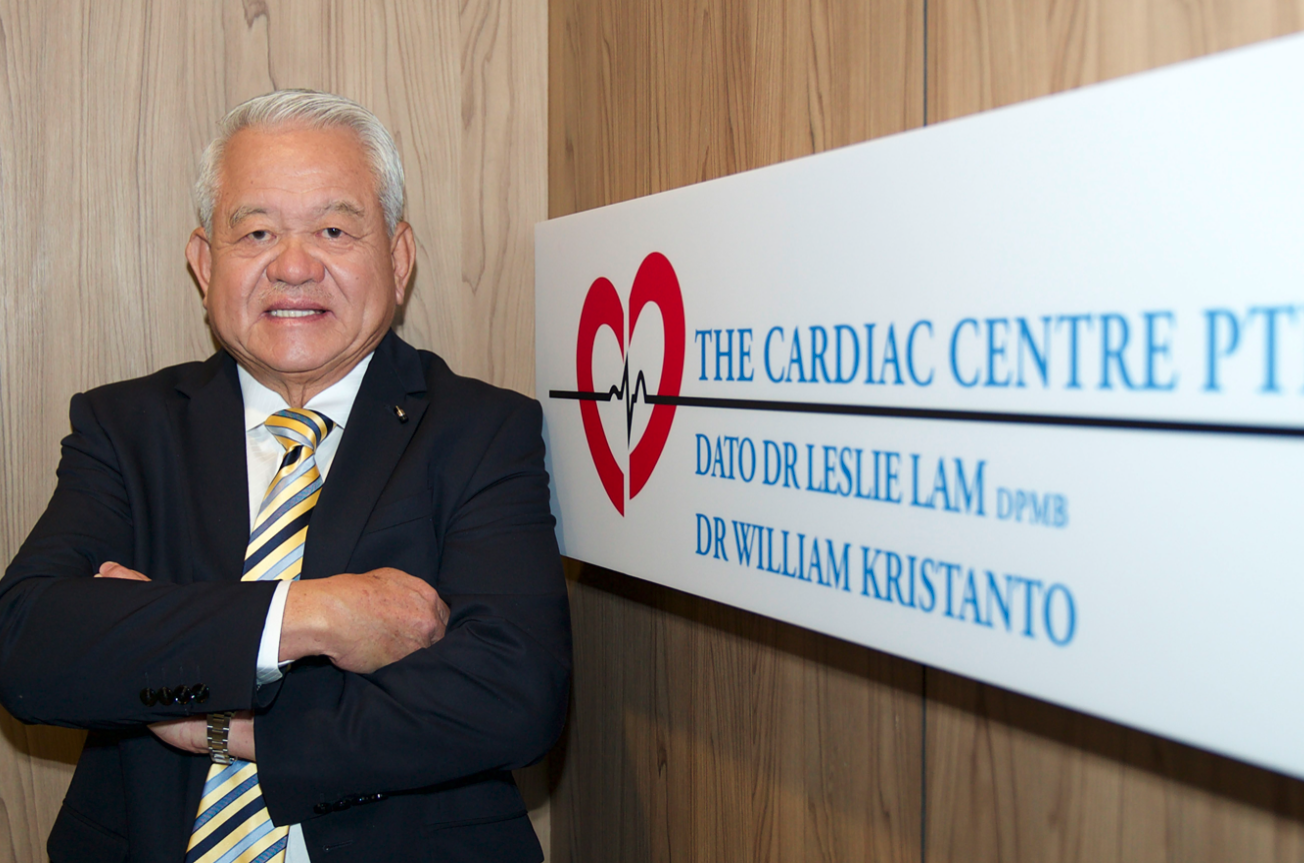
The Cardiac Centre Founder Dato Dr Leslie Lam
The Americans were mightily impressed with our work. We managed to complete each procedure in 35-40 minutes, which they were not able to do. I even received congratulations from some of the top cardiologists in the US, who became my peers and we now often ring each other to talk about our cases.
AngelMed stands out as a major milestone in your career – a career where you have made a number of significant achievements. In your opinion, what is your most memorable accomplishment?
DLL: I have achieved a number of firsts in Singapore, but I think AngelMed is my most memorable so far. I was the first in Asia to do the procedure, and the chances of that happening again remote. Also, it made the conditions under which the procedures were done, with COVID-19 restrictions and all, it increased the level of difficulty and made it even more memorable.
What motivates and drives you to continually improve and learn new techniques?
DLL: For me, when I do a difficult procedure and I do it well, I feel a great sense of happiness. You might even call it a high. This is the case with AngelMed. It is a feeling of achieving something good.
I have had a long career and it has been good. I have my dream house, my dream cars, and my dream wine cellar. I have a dream wife – we have been happily married for 53 years! There is probably nothing else I want, besides the satisfaction I get from my work. This drives and motivates me to always look for opportunities to improve.
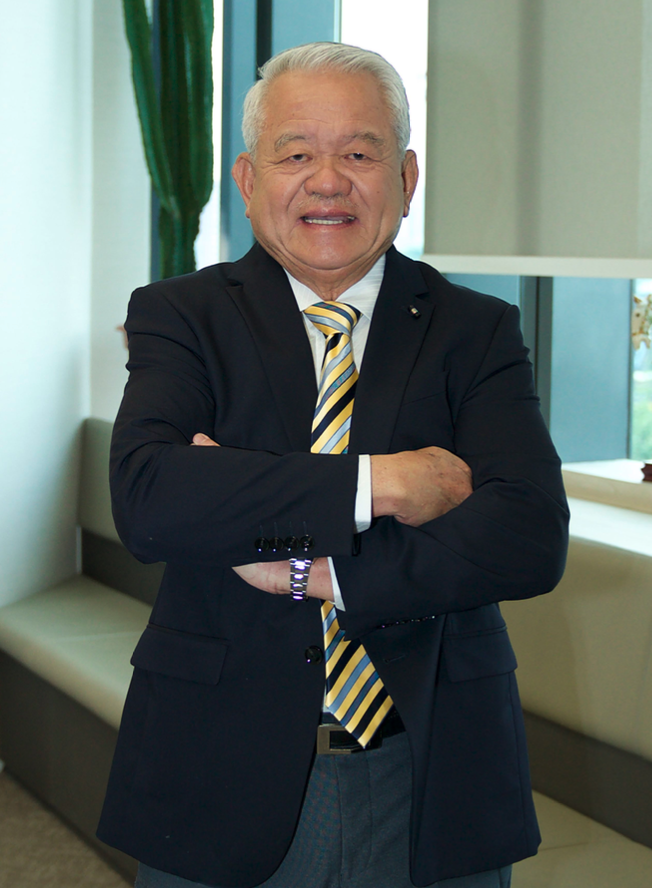
The Cardiac Centre Founder Dato Dr Leslie Lam
In your opinion, how does the healthcare industry in Singapore measure up? How do you we can further improve?
DLL: In terms of medical, Singapore is really at the top. The Singapore government spends about 7% of its GDP on healthcare. Our healthcare system is superior to the British and American systems. For instance, the British system is very chaotic. The waiting list for a gall bladder operation can take up to six months! Our government has also made healthcare very affordable for the masses.
Take a look at the average lifespan and the infant mortality rate in Singapore. Infant mortality rate is one of the best ways to judge the standard of healthcare in a country. Singapore has one of the lowest infant mortality rates in the world. So, our system is good. Are there any medical developments on the horizon that you are excited about?
DLL: Yes. Hypertension is such a big issue in Singapore. It is a major risk factor for cardiovascular diseases, and causes so much mortality and morbidity. Some people are on three, four or five drugs just to manage their blood pressure.
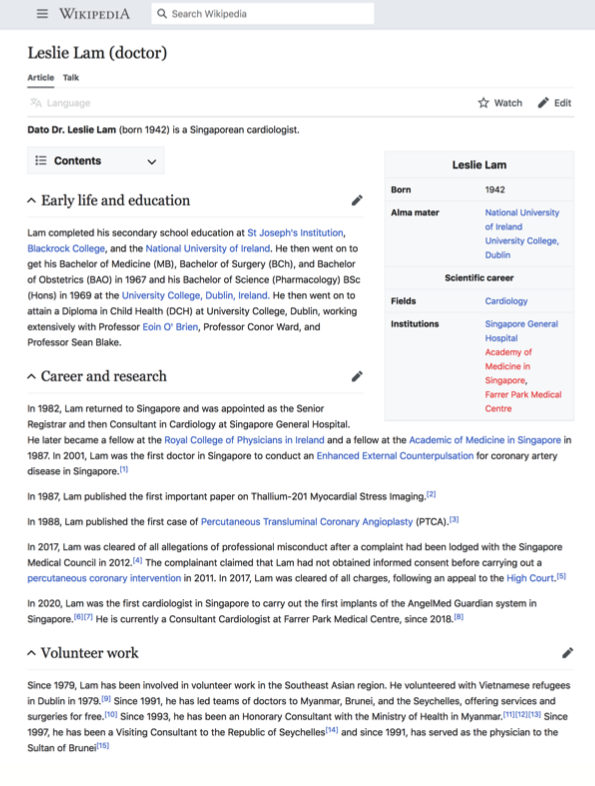
If there is a way in which we can oblique the renal artery and knock off some of the nerves there, a patient’s blood pressure will improve. But so far, the devices we use are placed inside the renal artery and heated in the hope that the heat will destroy the nerves. However, the heat has to pass through a thick wall to do that.
My friend, Dr David Fischell, has invented this new device, where after you have placed it in the artery and turned it on, fine needles come out and inject drugs outside the wall killing the nerves. He has spent few years on this project and the device has shown some results. I am very curious to see the long-term results of this device. Imagine a device that can cure high blood pressure! I think it is a very exciting breakthrough.
You are turning 80 this year, and you are still very sprightly and energetic. What advice do you have for people to maintain their health and wellbeing?
DLL: I think it is very important that we watch ourselves as otherwise, we might develop chronic diseases like cardiovascular diseases or cancer. These diseases can be treated with good outcomes, if they are diagnosed early. I wish more people would come forward for their conditions to be diagnosed early.
Bv the time we are sixty years old, most men would have developed cholesterol plaques in our arteries. These plaques do not usually cause any severe blockage. However, should any of these plaques rupture, you will quickly escalate from a 30% blockage to a 100% blockage, and suffer a full-blown heart attack as a result. This was what happened to the French triathlete, Laurent Vidal, a few years ago.
All these can be prevented as long as we commit to regular screening and take medications where necessary. Statins are very effective at stabilising these plaques. I encounter a lot of people who refuse to take these medications. If they commit to taking these medications, they have a very good chance of living up to their 80s and beyond. The problem is, most of the time, they do not commit until they encounter their first heart attack. It is not a risk they should be taking.
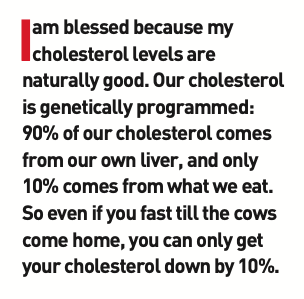
How do you maintain your health and wellness?
DLL: I have a condition known as atrial fibrillation where my heart does not have a normal rhythm. I discovered this ten years ago during a trip to Paris, where I was chairing a meeting, when I felt unwell. After I flew back to Singapore, it was discovered that I had a big clot in my left atrium. I was put on anti-coagulation medication and the clot disappeared.
I have been on long-term anti-coagulation medication since then. This means that I cannot do strenuous sports. Otherwise, I used to scuba dive and do a number of other strenuous, adventurous sports.
When I was young, my grandfather used to have a house at Temenggong Road, near Mount Faber. There were a lot of coconut trees there. I used to climb these trees – right to the top – and use a small tomahawk to cut open coconuts, drink them, and watch the world go by.
Nowadays, I mainly fish and golf. I fish once a month aboard a yacht with a bunch of my fishing enthusiast kakis, where we enjoy fishing, music, good food, great wine, and cigars. With our catch, we then go back to my house to feast. If (Mr) Sam Wong (Chef at Lucky House Cantonese Private Kitchen) or (Ms) Petrina Loh (Chef at Morsels) came fishing with us, they would cook for us. The whole activity could stretch an entire day and end at midnight.
Do you need to watch what you eat?
DLL: No, I am blessed because my cholesterol levels are naturally good. Our cholesterol is genetically programmed: 90% of our cholesterol comes from our own liver, and only 10% comes from what we eat. So even if you fast till the cows come home, you can only get your cholesterol down by 10%. Whereas if you take statin medications, you can get your cholesterol levels down by 40%. This is why I always tell my patients: diet in moderation. Avoid fatty meats. If you like steaks, have it once a week, just do not have it every day.
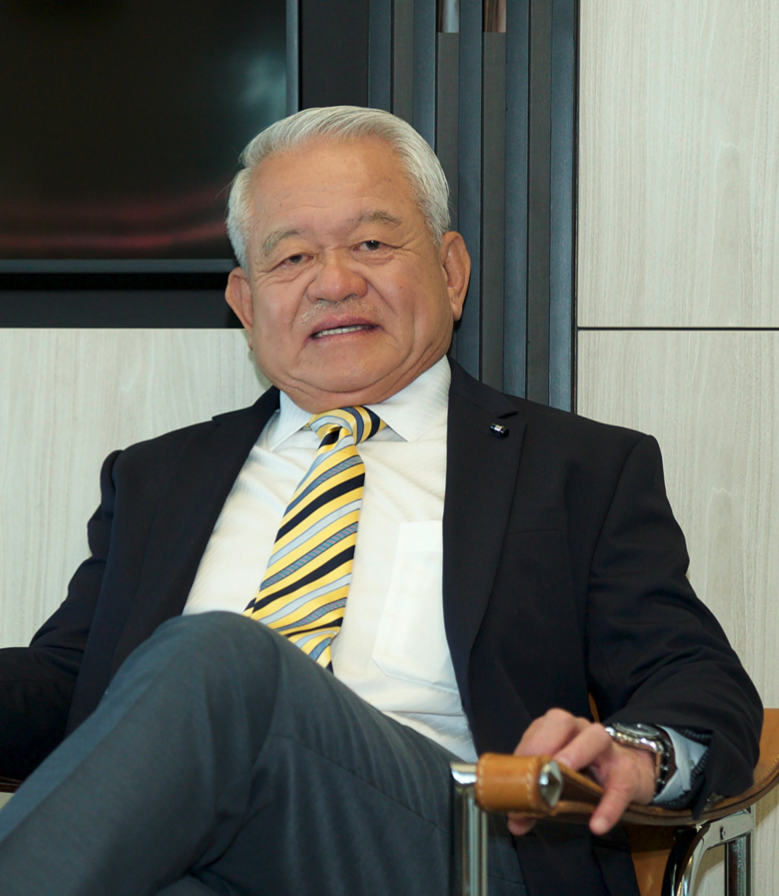
The Cardiac Centre Founder Dato Dr Leslie Lam
Tell us more about the voluntary and philanthropic work you do.
DLL: I started doing volunteer work when I was still a junior doctor in Dublin. During that time, a lot Vietnamese refugees landed in Ireland, and I volunteered to look after them.
After I came back to Singapore, I helped at my old school, De La Salle School, which used to be at Kampong Bahru. A number of years ago, the school approached me to donate two prizes for their La Sallean of the Year award. After that, they approached me again to donate for the Junior La Sallean prizes as well. So, I donate these prizes to the school every year. Besides these prizes, I also donate to the school fund for needy students, which provides aid to students who have no money to buy books.
Besides De La Salle, I also donate to my other old schools, including SJI (St Joseph’s Institute) and my alma mater in Dublin. I also partnered with my former boss, Professor (Eoin) O’ Brien, to create and fund the O’Brien-Lam collection – a collection of Irish literature works from Samuel Beckett and other Irish literary luminaries.
What are your future plans?
DLL: I am semi-retired now and I have just taken in a very good junior partner whom I hope will take over my cases when I retire in about three years. My patients have already been asking me, “You are close to 80. How long do you plan to go on? But right now, I’m still doing a lot of procedures. I am very steady with my hands, and I am enjoying life and my work.
Any parting advice for Prime readers?
DLL: There are so many things I can think of! But the one thing I would say to younger people is to think out of the box, and to not merely follow routine. If I had not thought out of the box, I would not be where I am today. It pays to take risks. For example, when I decided to go into private practice, my father disagreed with me and thought I was crazy as I was already making good money in the public sector.
You have to take some chances in life, be more adventurous. This is a message I advocate when I give talks at my old schools. This is also my advice to all Prime readers.
PRIME


